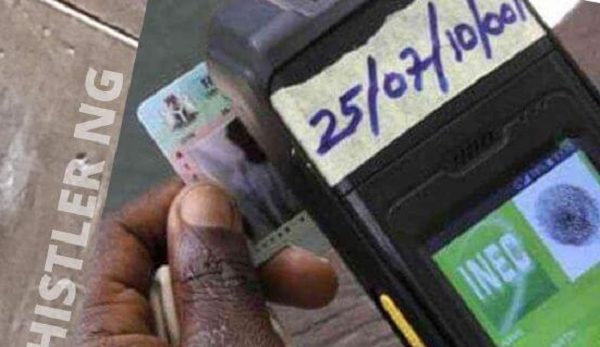The Independent National Electoral Commission INEC has declared that with the Bimodal Voters Accreditation System (BVAS), there be no rigging and other electoral malpractices.
Chief Press Secretary to the Chairman of INEC, Rotimi Oyekanmi, who made these remarks in a statement in Abuja, added that the 2023 elections would not be “business as usual”.
He told politicians and their followers not to to undermine the electoral process, because it would not work, rather he advised them to mobilise registered voters to vote for their preferred candidates on election day.
“Supporters of the competing presidential candidates for the 2023 general elections will help their respective candidates better if they spend the next two months before the polls to rigorously convince and mobilise registered voters across the length and breadth of Nigeria to vote for their preferred candidates than to continue smearing the reputation of the Independent National Electoral Commission with baseless conspiracy theories.
The INEC said as the umpire, it would not favour any candidate. “We have been preparing for the 2023 polls since the conclusion of the 2019 general elections, perfecting existing tools and introducing other innovations. These innovations are designed to ensure the integrity of the process and make it impossible for any politician or INEC Staff to compromise an election in favour of any candidate.
“Therefore, the insinuation that some politicians are buying Permanent Voter Cards to rig the 2023 general election is baseless because INEC has moved very far away from the period when the Incident Form could be used for that purpose on election day.’’
Oyekanmi said some unscrupulous politicians took advantage of the incident form used during the 2015 and 2019 elections to rig the polls using illegally procured PVCs.
“Unfortunately, some politicians took advantage of this waiver, bought PVCs, gave them out to their acquired voters and sent them to polling units to vote, using the incident form.
“This was one of the reasons why the commission introduced the Bimodal Voter Accreditation System for the 2023 general election. The BVAS has one significant advantage over the SCR: it accredits through fingerprint and facial recognition.
“So, if your fingerprint fails, certainly your face will not fail. However, if the BVAS rejects your face, it means you are not an authentic voter and will not be allowed to vote. You will be asked to leave the polling station immediately. You could also be arrested for impersonation.’’
He said the commission has introduced the Result Viewing Portal in 2020 to enable the upload of polling unit results in real-time, adding that the technology had been used in various off-season governorship elections.
“Besides, to engender transparency, the Commission introduced the INEC Result Viewing Portal in 2020, where individual polling unit results are uploaded on election day. We used the portal for the Edo, Ondo, Ekiti Osun, and Anambra off-season governorship elections. At the end of voting on election day, after the ballots have been counted and results announced, the Presiding Officer will take a picture of the result sheet – Form EC8A – and upload the same to the IReV portal before departing to the collation centre. Party agents and voters will witness this activity that is backed by law.
“So, for this 2023 election, it is one genuine voter, one vote. No PVC, no voting. No accreditation by BVAS, not voting. If you try to cause trouble at the polling unit because the BVAS rejects your fingerprint and face, the security agents around will arrest and prosecute you, according to the provisions of the Electoral Act 2022.
“Therefore, this general election will not be business as usual. If there are politicians out there still going about purchasing PVCs to use pseudo-voters on election day, they will not only be disappointed but arrested and prosecuted,’’ INEC warned.









